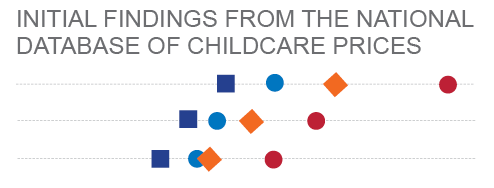
The most comprehensive source of child care prices at the county level with price data by provider type, age of child and county
More Data & Information
- Employment issues related to pregnancy, birth and nursing Information on federal and state-level employment protections against pregnancy discrimination, provisions for pregnancy accommodation, and workplace breastfeeding rights.
- Paid Leave Learn more about access to, and the need for, paid leave.

